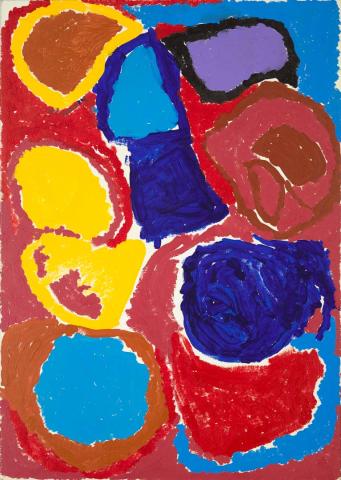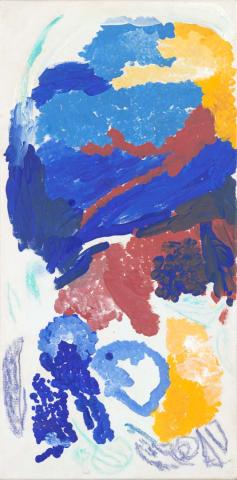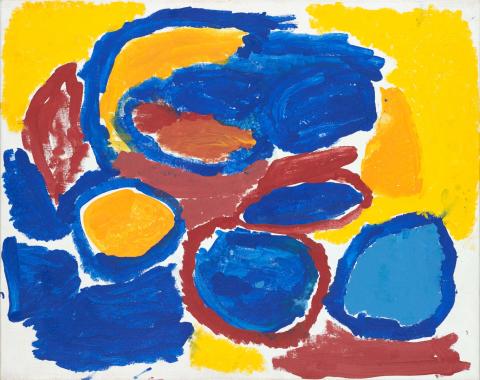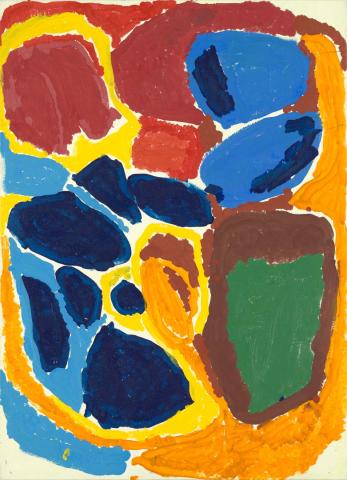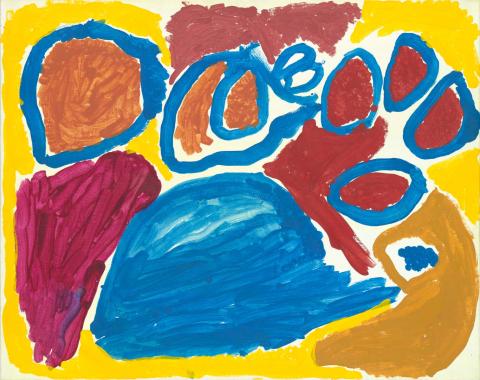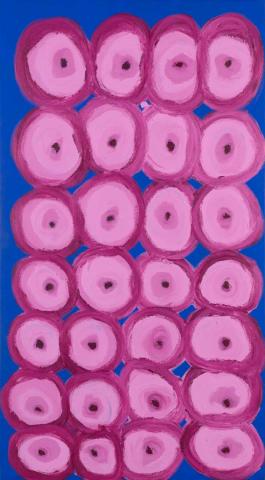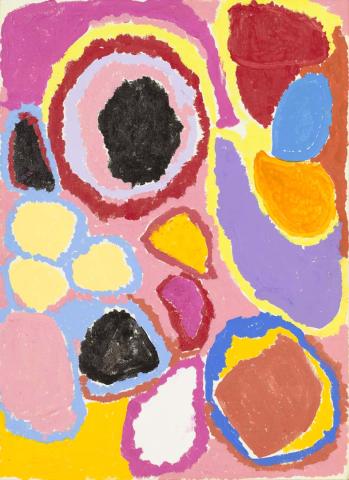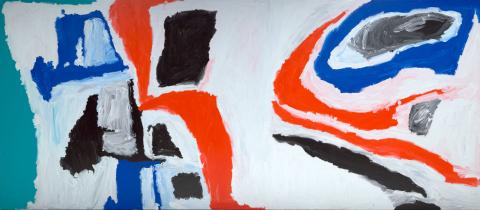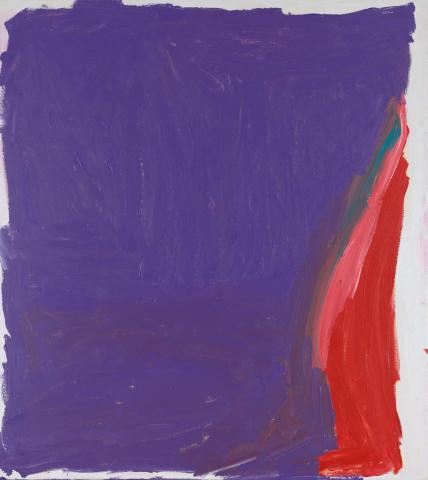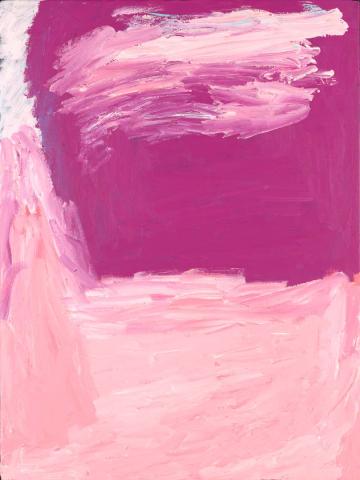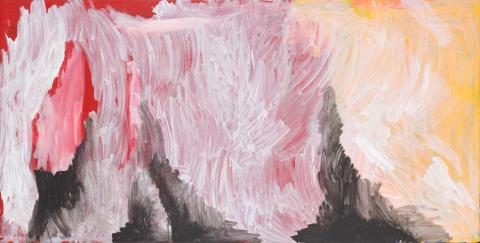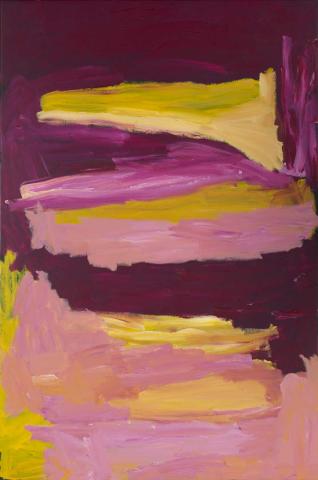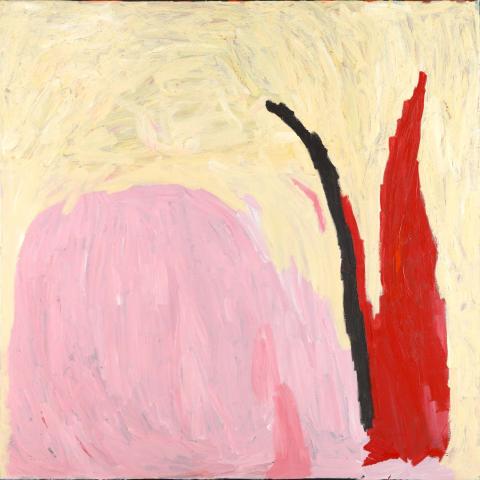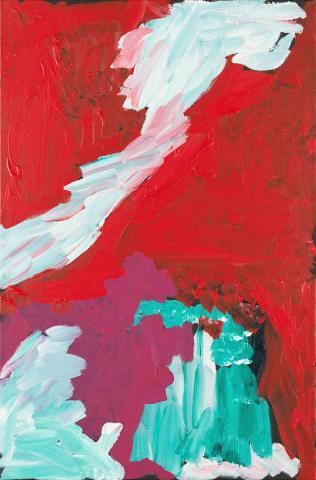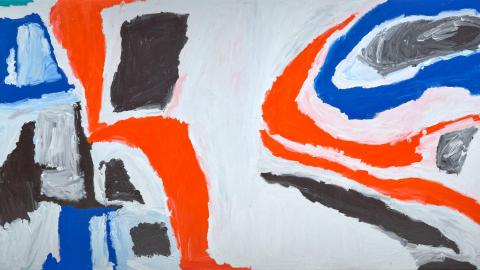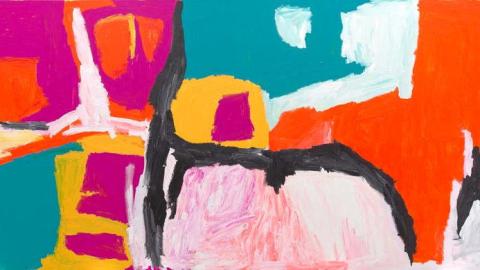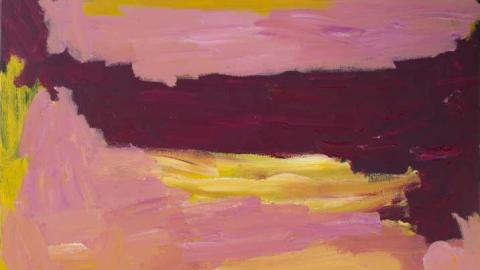Gabori's large-scale paintings
‘Sally Gabori: Land of All’
Mirdidingkingathi Juwarnda Sally Gabori was one of the most important contemporary Australian painters working through the 2000s and 2010s and the most feted of community-based artists from Queensland. This painting is the largest in a truly significant collection that was gifted to the Gallery for the people of Queensland by the Estate of Mirdidingkingathi Juwarnda Sally Gabori.
The works in this group [listed below] add to the Gallery's own holdings to create a comprehensive representation of the artist's career, from her very first painting to her last. Makarrki 2008 is a major, large-scale painting from a period when Gabori's technique and confidence developed exponentially.
As she continued to paint, Gabori established a unique painting style, where she would lock her brush firmly into her hand and paint with a gestural action initiated by her shoulder. Her highly energetic movements suited painting on larger surfaces and, through 2008, many vibrant, tropical-toned works were produced in scales between three to six metres in length.
Sally's paintings of Makarrki are layered with complex memories and intense emotions. The head of the Makarrki River, at the heart of the northern shore of Bentinck Island, was an important hunting ground and Sally often recalled the exploits of her ‘brother’ (brother-in-law) Tarurukingathi Kulkitji (Buddy) wrestling with dugongs there. It was also the country of her older brother, Makarrkingathi Dingkarringathi Thuwathu Bijarrb (King Alfred). King Alfred was the leader of the main Kaiadilt clan in the years prior to their removal to Mornington Island. He is remembered by his family as a strong warrior and leader.
In the late 1940s, a period of great drought caused tremendous friction within Kaiadilt society and conflict was common. In a fateful turn of events King Alfred took the life of Buddy, before Buddy's brother, Kabararjingathi Bulthuku Pat Gabori killed the King and took his younger sister, Sally, as his wife.1
Although this work, as with many of Gabori's works, was not directly interpreted by the artist, a number of recurrent symbols and styles are present. At the right is a solid dark oval form, surrounded by bands of colour radiating outward, indicating one of the many small islands at the river mouth, being embraced by lapping water as it races in or out of this great tidal estuary or a dugong creating ripples on the surface of the water as it breaks the surface. To the left is a complex arrangement of geometric forms, most likely indicating the rock-walled fish traps that line the mouth of the river near Sally's family's camp.
Endnote:
- Details recorded in Norman B Tindale, ‘Geographical knowledge, and some population changes of the Kaiadilt people of Bentinck Island, Queensland’, in Records of the South Australian Museum, Vol.XIV, No.2, July, 1962. An account of this incident is also given by Pat Gabori in ‘Thundamun’, in Dick Roughsey, Moon and Rainbow: The Autobiography of an Aboriginal. Reed, Sydney, 1971, p.116.
